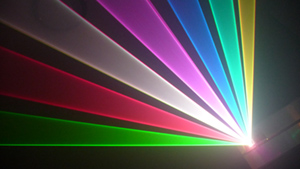Since this is a forum about light sources, I thought this would be a good question: will humanity ever find a way to travel faster than light?
Humans have an incredible desire to explore. Although we have sent probes to most of the planets, humans have only visited the Moon. However, there are an estimated 70 sextillion stars in the known universe, and we haven't even left our solar system. The universe is so incredibly vast, it would take light (which travels at almost 300,000 km/s) over four years just to reach our nearest star (other than the Sun). In order to explore other stars (or galaxies) within a reasonable timespan, we will need to travel faster than light.
However, Einstein's theory of relativity says that no matter or information can travel faster than the speed of light. As space travelers approach relativistic velocities, they will experience time dilation, which considerably shortens their trip. However, for the people on Earth, the trip will always take longer than it takes light to reach the destination (plus the time it takes the information to return).
The thing is, some "impossible" things have been proven possible before. For example, Lord Kelvin once stated, "Heavier-than-air flying machines are impossible." More notably, Einstein himself stated that "there is not the slightest indication that nuclear energy will ever be obtainable. It would mean that the atom would have to be shattered at will." However, less than a decade later, nuclear technology was already being developed.
However, quantum mechanics are far more complicated than aerodynamics or simple nuclear physics. Nevertheless, there are theoretical methods that allow faster-than-light travel, such as wormholes, the Alcubierre drive and the controversial Heim hyperdrive. However, there are many practical problems associated with these devices.
Back on topic, will we ever see interstellar travel packages, or will be confined in the solar system for many years?



 Reply With Quote
Reply With Quote


 buffo
buffo

